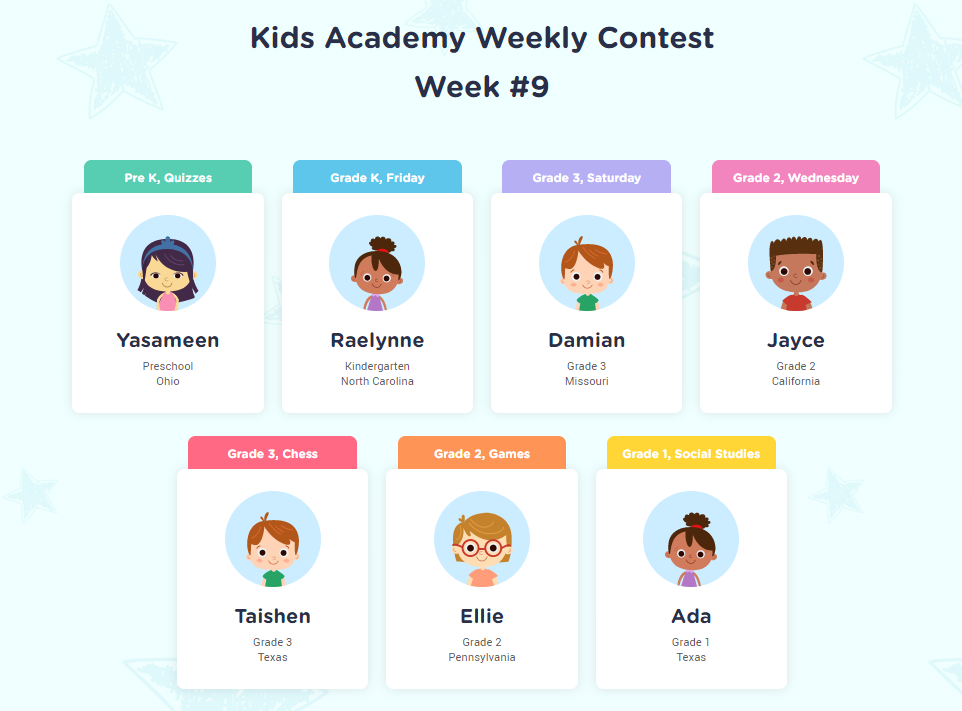Enhancing Reading Comprehension Normal Social Studies Worksheets for Ages 4-6
8 filtered results
-
From - To
Discover our engaging "Enhancing Reading Comprehension Normal Social Studies Worksheets" designed specifically for children aged 4-6. These worksheets aim to boost young learners' reading skills while introducing essential social studies concepts. Through fun activities and age-appropriate content, kids will explore topics such as community, citizenship, and cultural diversity. Our resources encourage critical thinking and comprehension, ensuring children develop a strong understanding of the world around them. Each worksheet promotes interactive learning, making it an ideal tool for classrooms or at-home education. Dive into our comprehensive collection to nurture a love for reading and social awareness in your young learners today!


The Constitution Worksheet
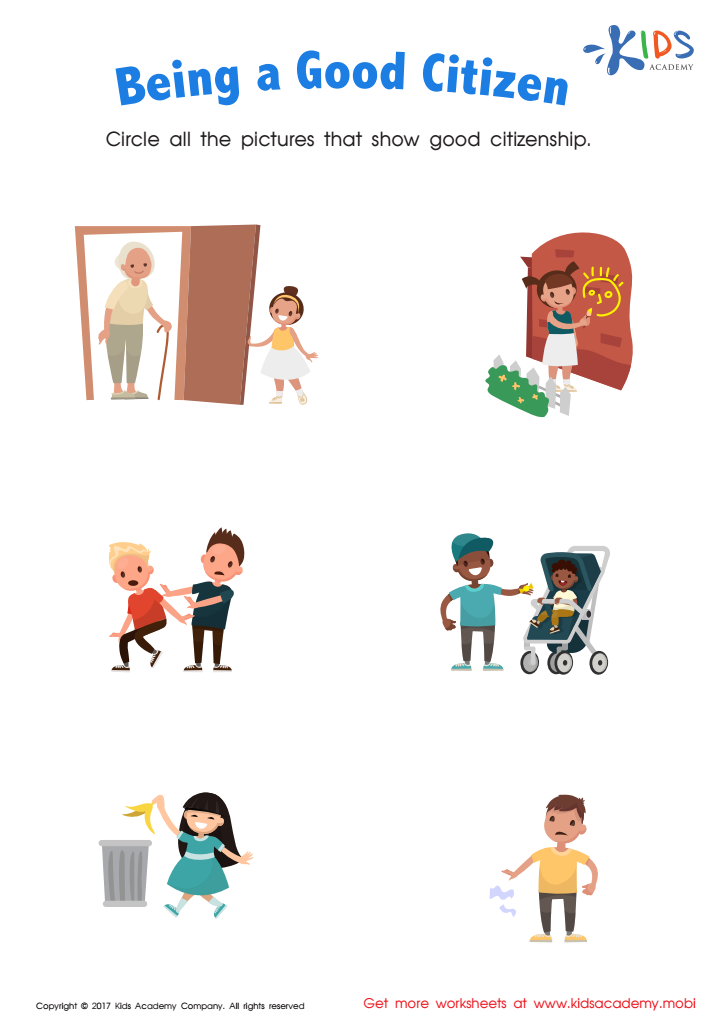

Being a Good Citizen Printable
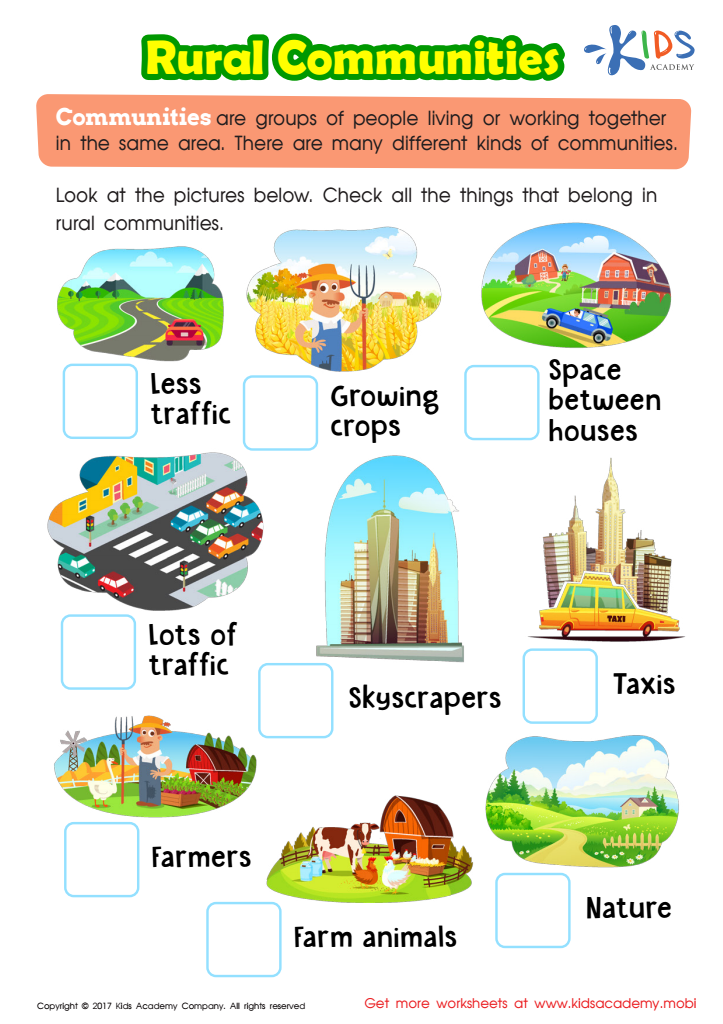

Rural Communities Printable
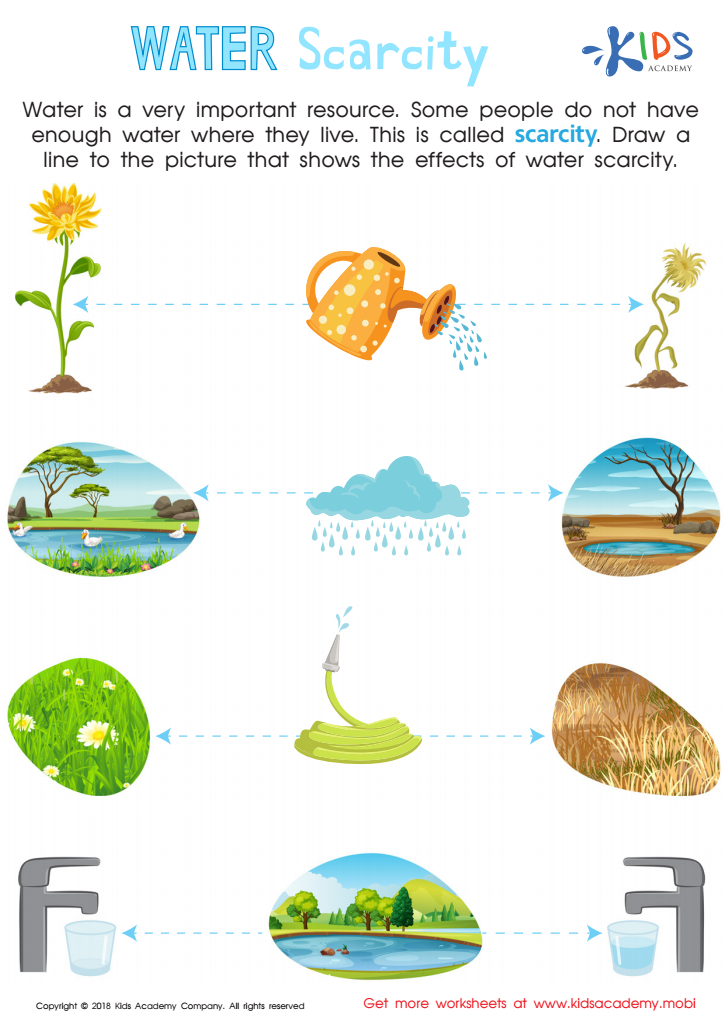

Water Scarcity Worksheet
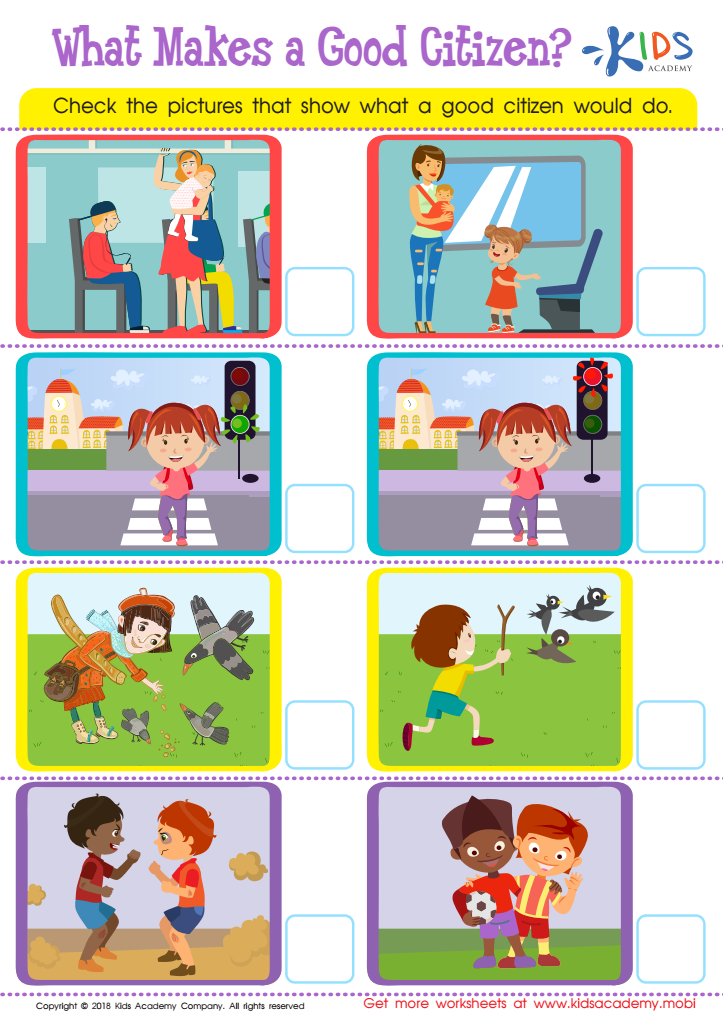

What Makes a Good Citizen? Worksheet
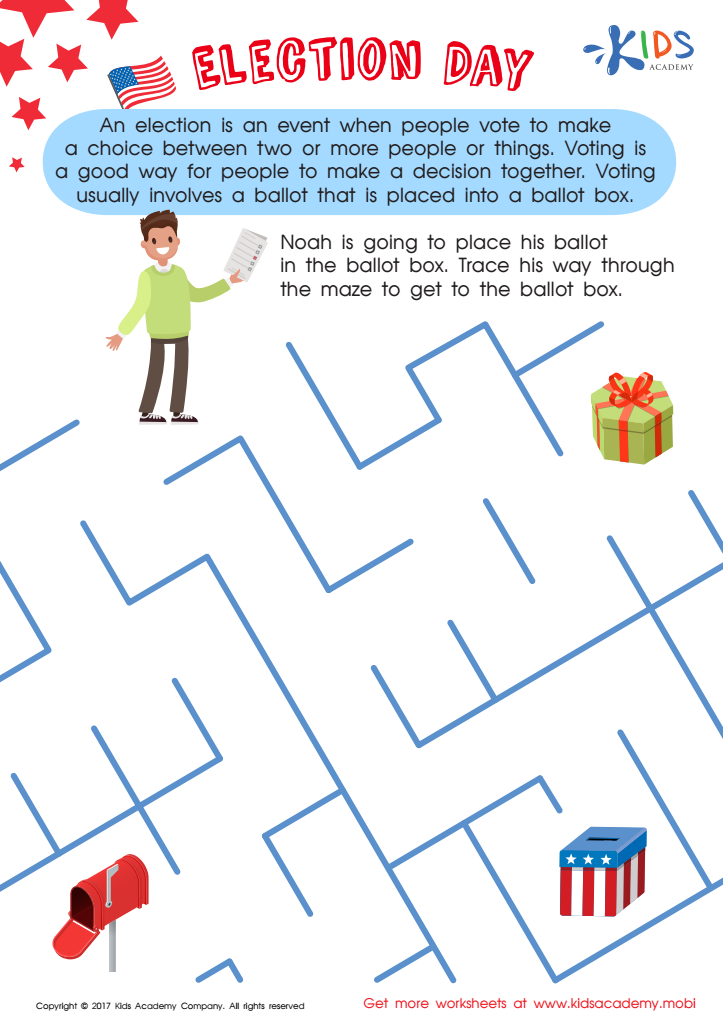

Election Day Worksheet
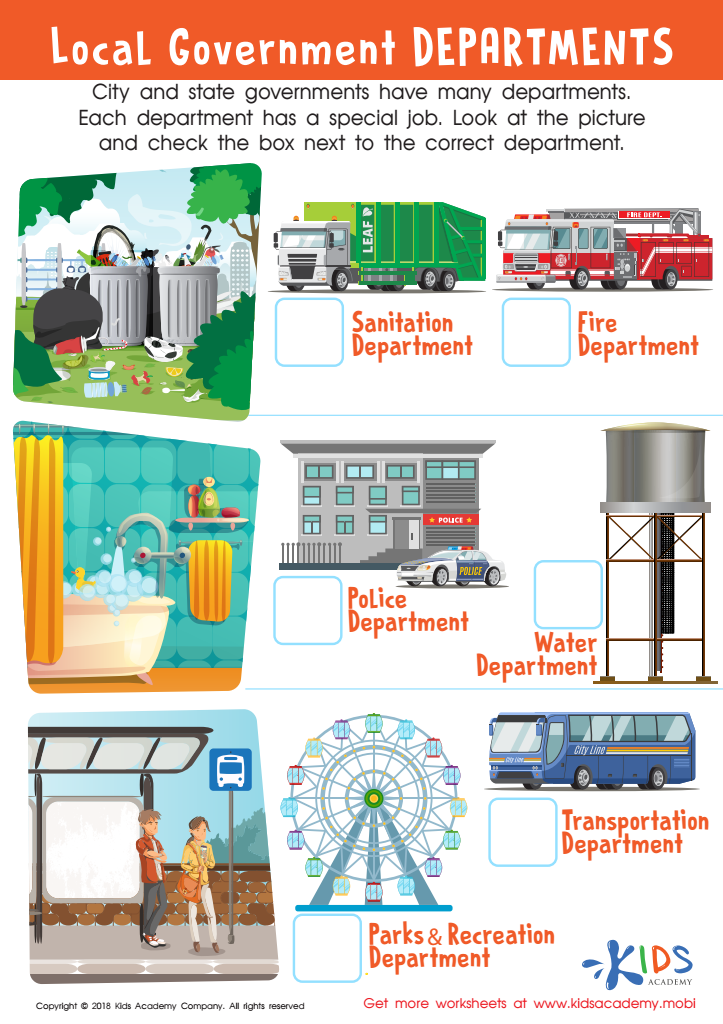

Local Government Departments Worksheet
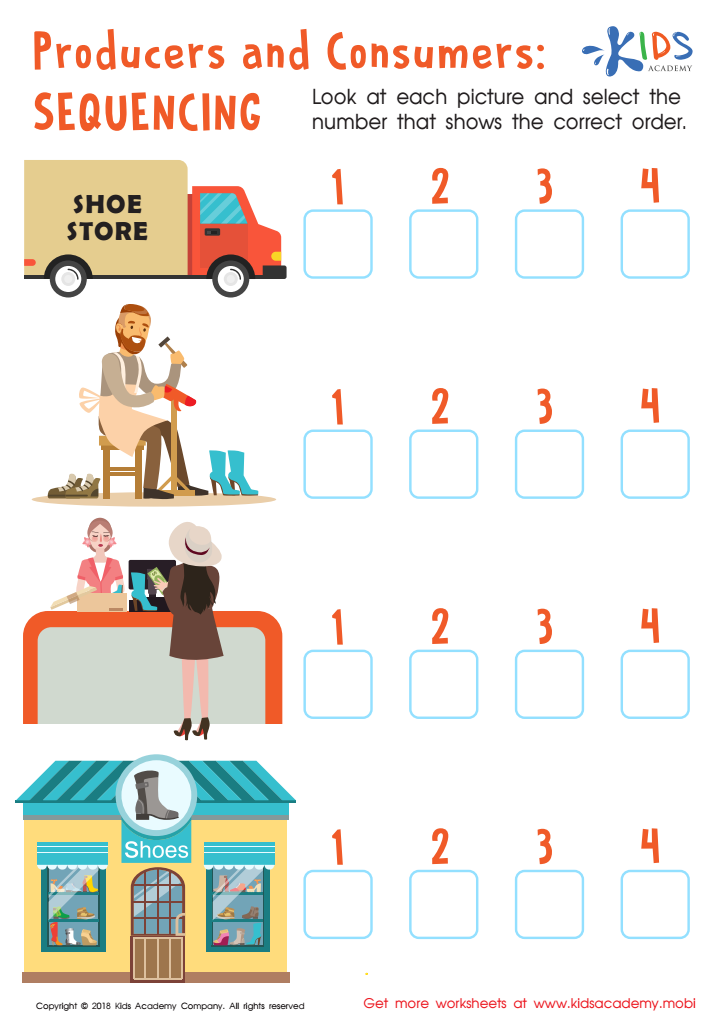

Producers and Consumers: Sequencing Worksheet
Enhancing reading comprehension in social studies for children aged 4-6 is crucial for several reasons. This age group is at a fundamental stage in their cognitive and social development, and comprehension skills formed now lay the groundwork for future learning. Understanding social studies helps young learners connect with their community, culture, and the world around them, fostering a sense of identity and belonging.
When parents and teachers emphasize comprehension in social studies, they equip children with critical thinking skills to analyze and interpret information. This encourages curiosity and exploration, important traits for lifelong learners. Comprehension also enhances vocabulary development; as children engage with stories and concepts related to social studies, they expand their language skills, leading to better communication abilities.
Moreover, well-developed comprehension skills promote empathy and understanding of diverse perspectives, which are essential in today’s increasingly interconnected world. Children learn to value different cultures and ideas, promoting tolerance and cooperation. Therefore, supporting reading comprehension in social studies provides not just academic advantages, but also nurtures socially responsible individuals ready to engage with their communities effectively. By prioritizing this area of education, parents and teachers cultivate informed, compassionate future citizens.
 Assign to My Students
Assign to My Students




